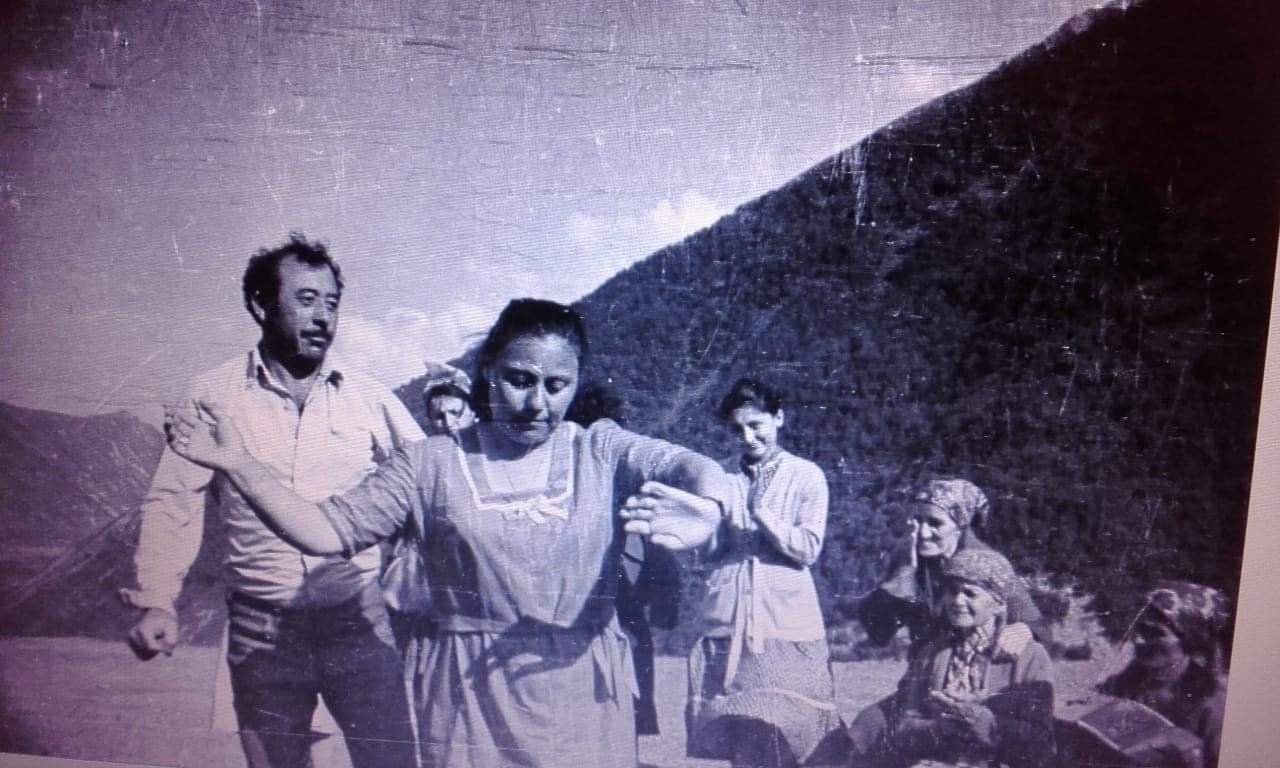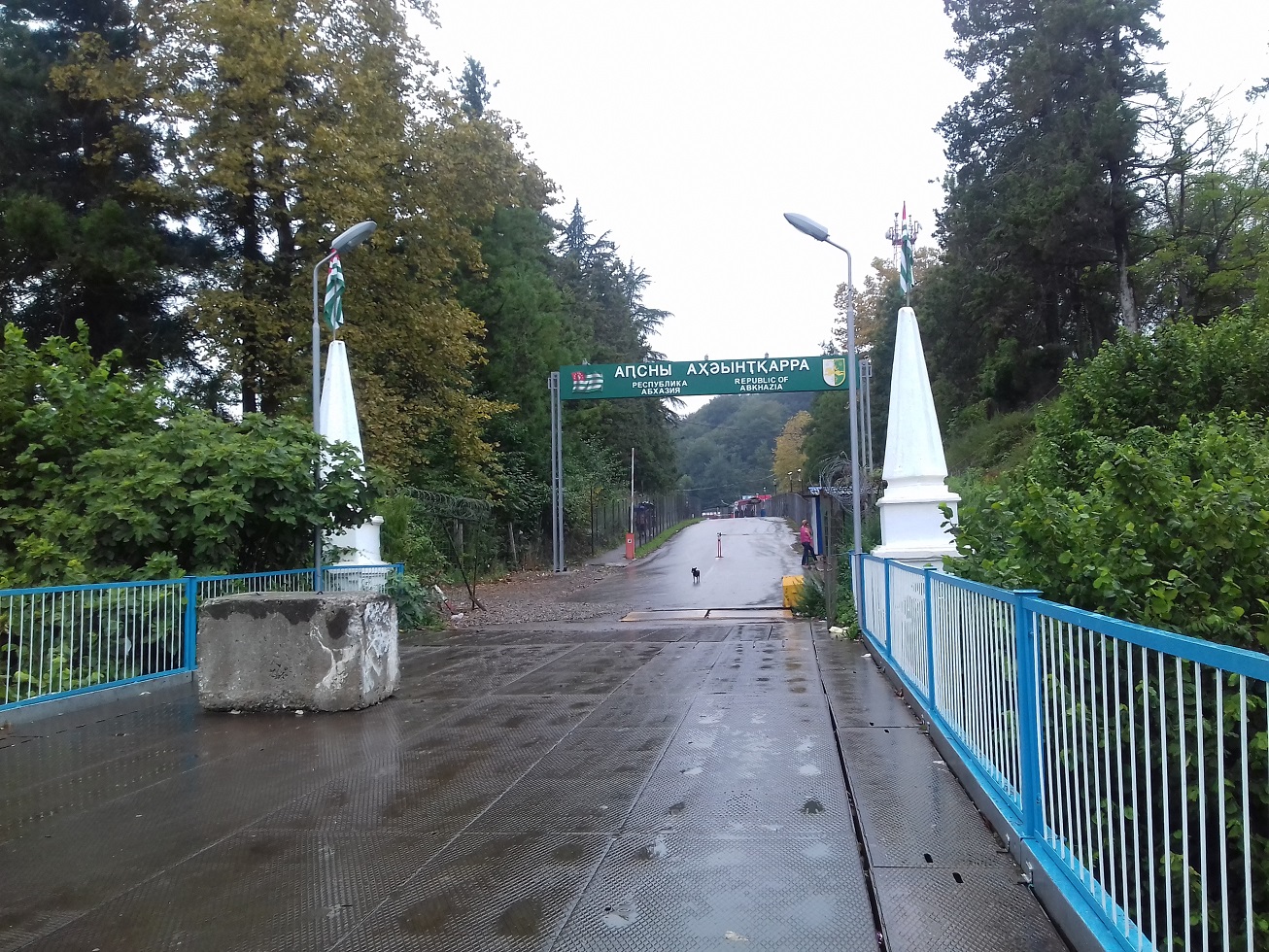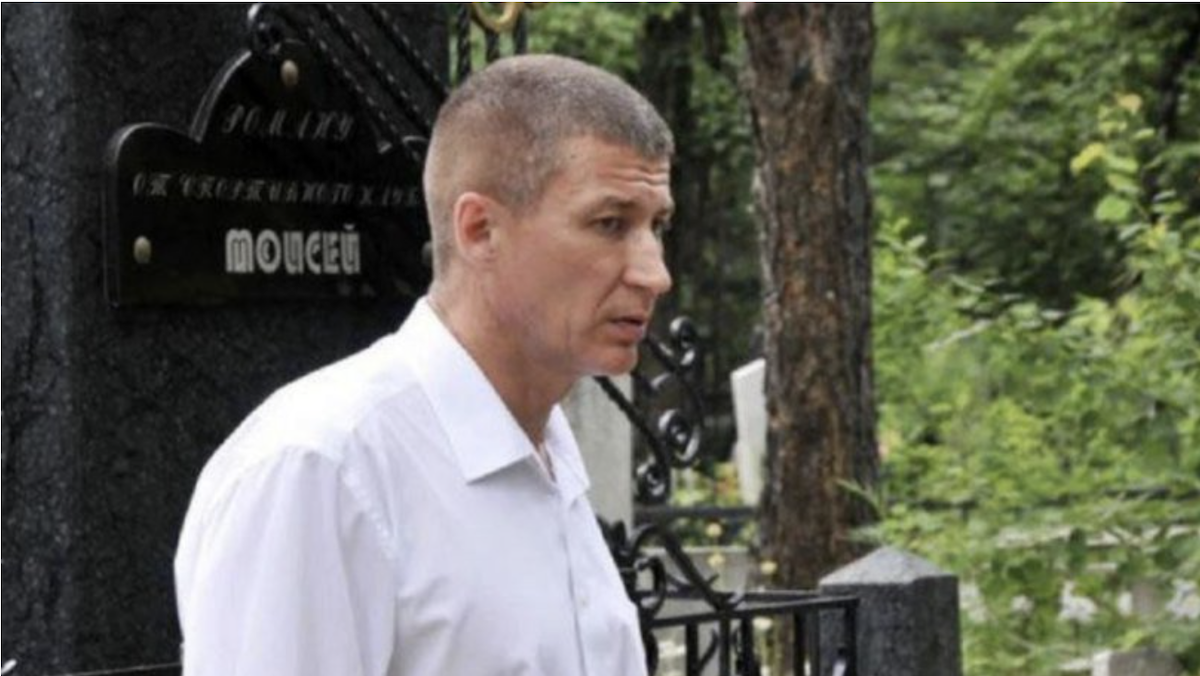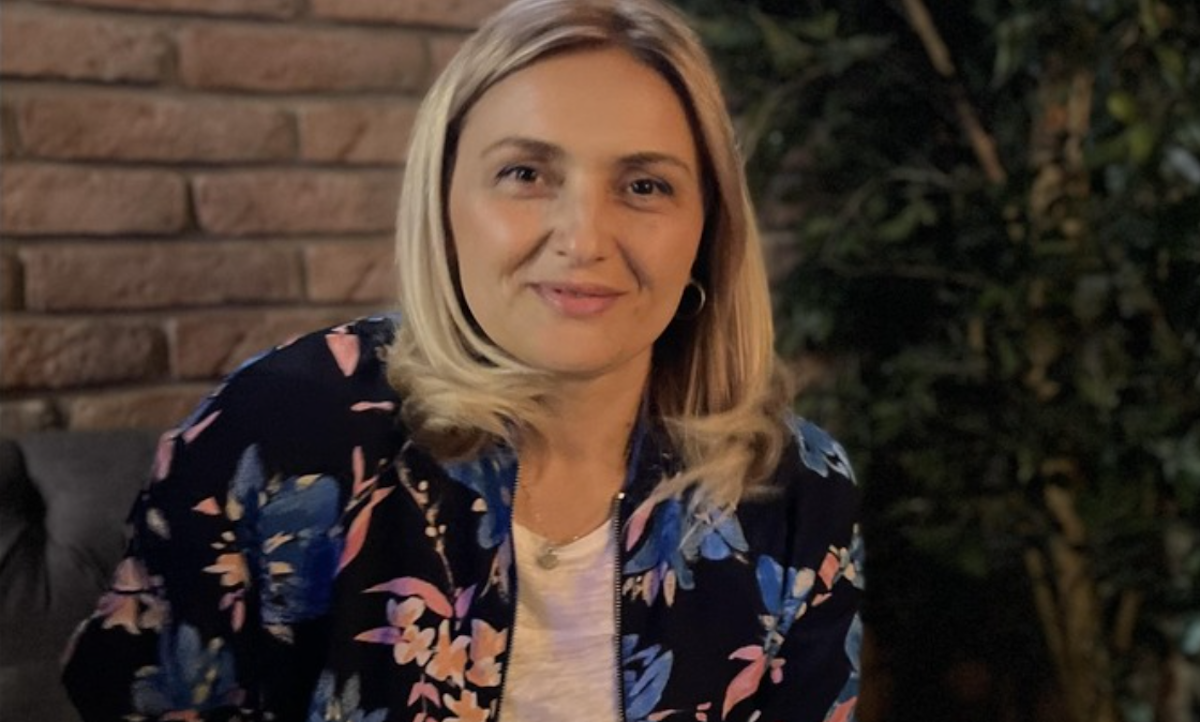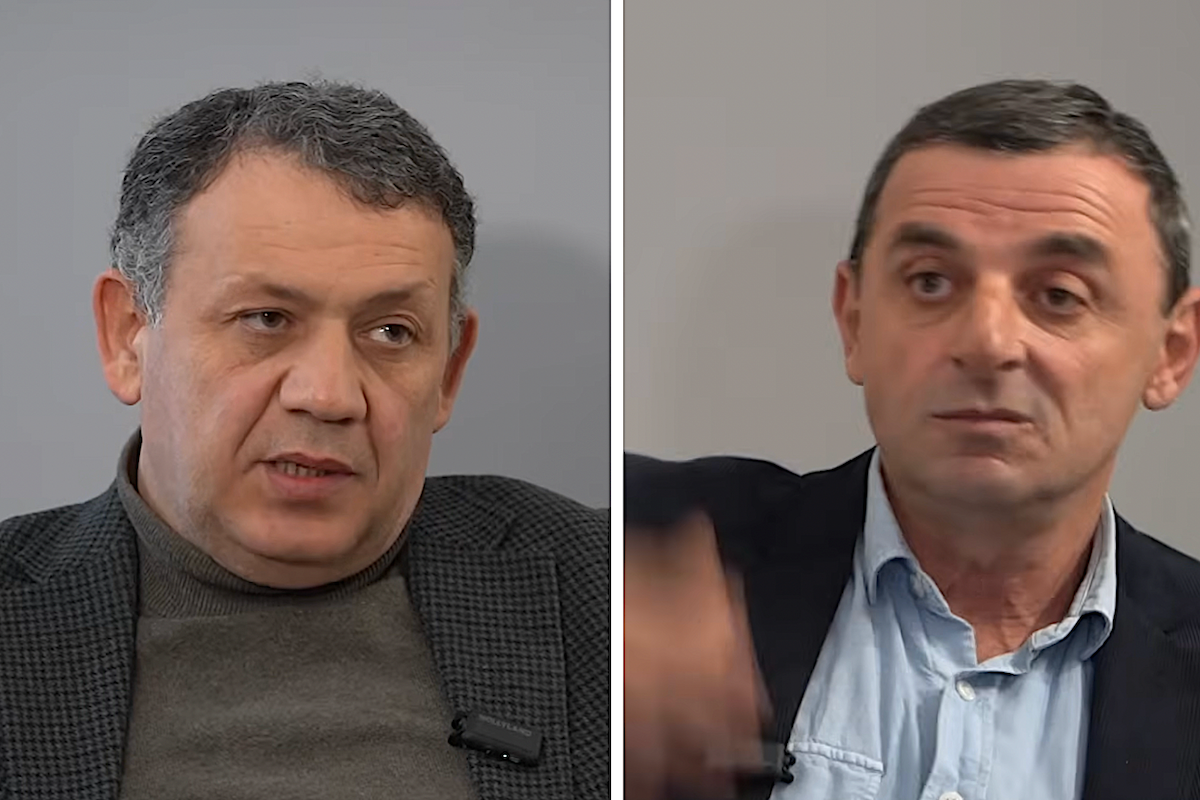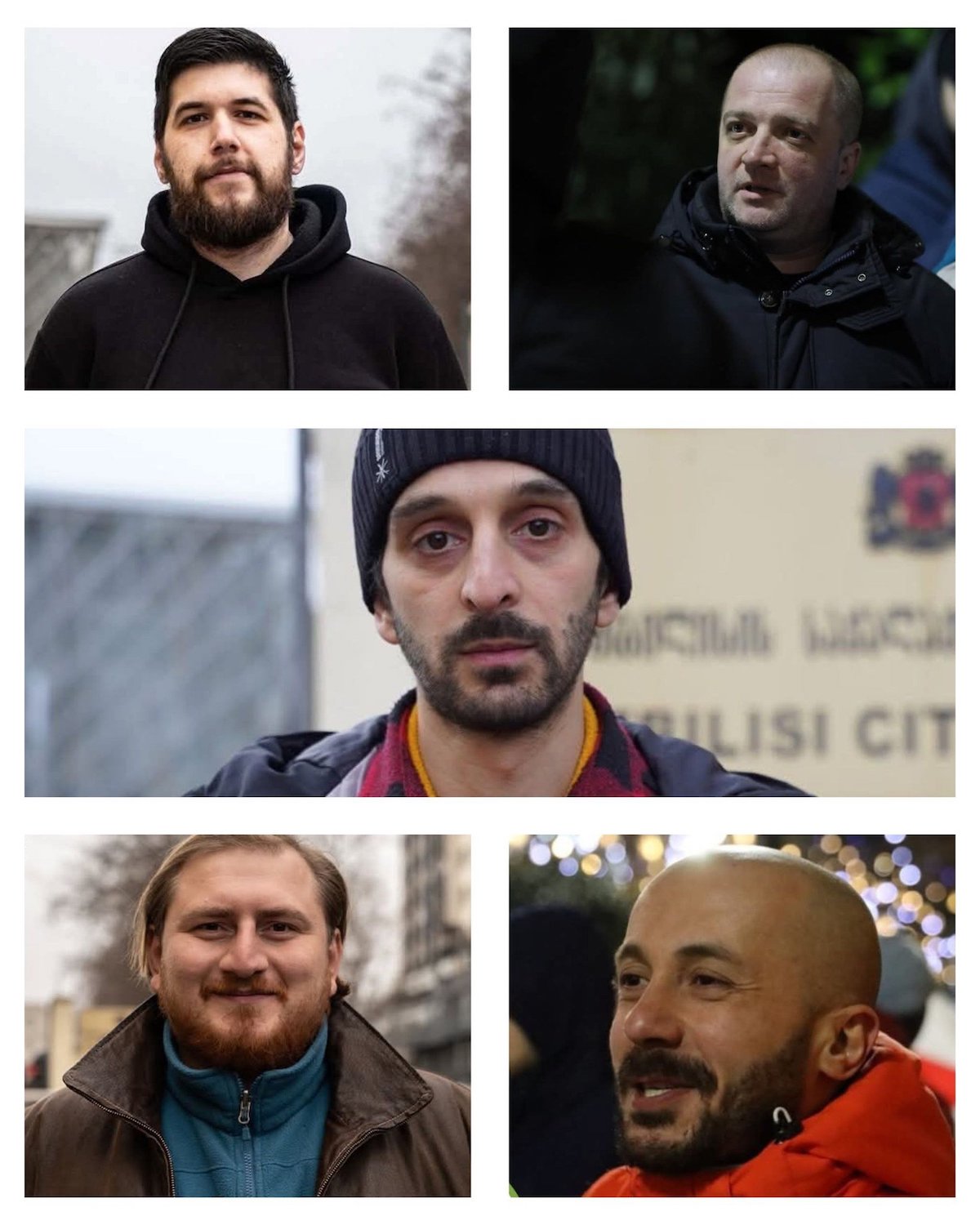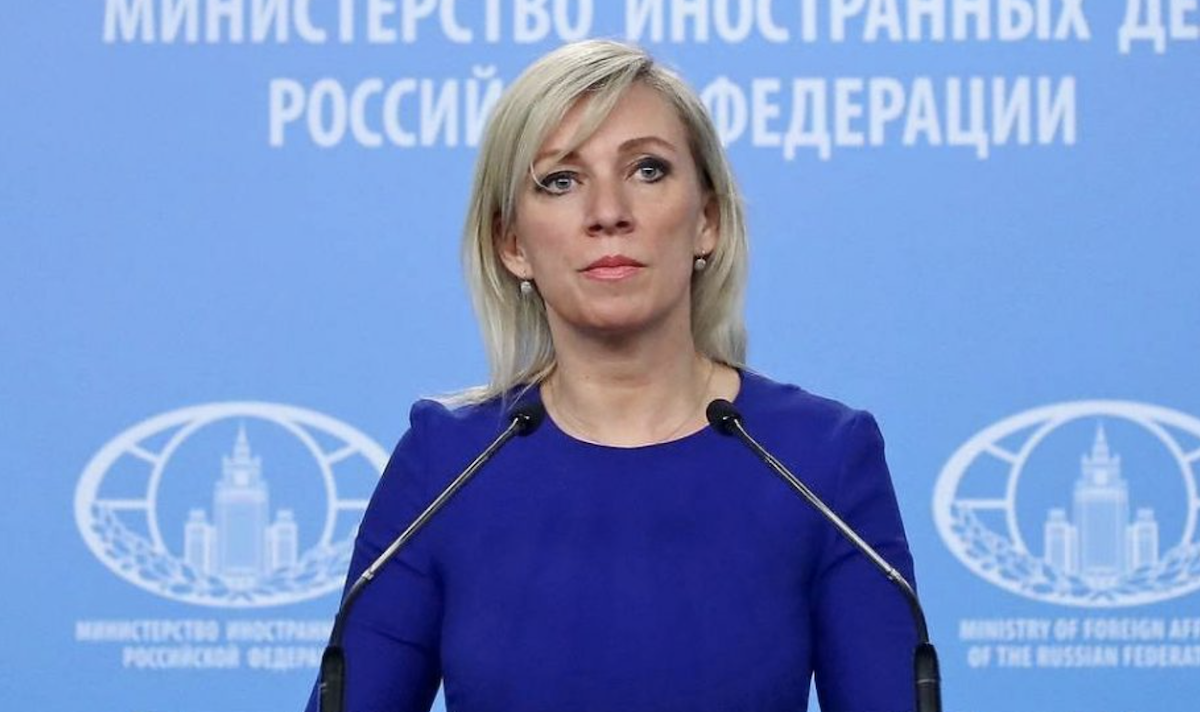Why are Ossetians affected by the conflict unable to regain Georgian citizenship and their property?

After the Georgian-Ossetian conflict of the 1990s, tens of thousands of ethnic Ossetians left Georgia, leaving behind real estate.
In 2006, Georgia passed a law aimed at addressing restitution and compensation for these individuals. The law mandated a special commission to decide on property return within a short period, but it remained unimplemented.
Today, the only recourse for ethnic Ossetians seeking to reclaim their properties is through lengthy court proceedings.
Ossetians who departed Georgia during the 1990s face challenges in reclaiming or retaining their citizenship.
Furthermore, the Human Rights Center, a public human rights organization, has examined such cases. Their findings indicate that when ethnic Ossetians express a desire to reclaim their property or restore their citizenship in Georgia and initiate legal proceedings, they are placed on a blacklist. Consequently, they are barred from entering Georgia.
Why does this occur? What threat does the Georgian state perceive, and what avenues do Ossetians have to pursue the restitution of their property or citizenship? How does legislation address these matters, and why has the law, intended as an expedient mechanism, proven ineffective?
As a consequence of the armed conflict and ethnic tensions in Georgia from 1989 to 1992, the ethnic Ossetian population residing in the country encountered numerous difficulties. Approximately 70,000 ethnic Ossetians were compelled to abandon their property and relocate abroad due to ethnic persecution. Conversely, around 12,000 Georgians fled their homes in the conflict-affected areas.
According to the 1989 census, Georgia was home to over 164,000 Ossetians, with 65,000 residing in the South Ossetian Autonomous District and up to 99,000 dispersed throughout the rest of the country.
As per the latest available census data from 2014 (excluding the Tskhinvali region due to Georgia’s lack of jurisdiction there), there are 14,385 ethnic Ossetians residing in Georgia. Some of the Ossetians who emigrated express a desire to return to Georgia and reclaim their abandoned property. However, this process is fraught with challenges.
As per the latest available census data from 2014 (excluding the Tskhinvali region due to Georgia’s lack of jurisdiction there), there are 14,385 ethnic Ossetians residing in Georgia. Some of the Ossetians who emigrated express a desire to return to Georgia and reclaim their abandoned property. However, this process is fraught with challenges.
Denial of Citizenship Restoration: Specific Cases
Murat (name changed) was born in Tbilisi. During the events of the 1990s, he had to relocate with his parents to Vladikavkaz. His parents acquired Russian citizenship during that time. As a minor at the time, Murat did not receive citizenship.
Subsequently, the family returned to Tbilisi, but following the 2008 war, they relocated to Russia once again. By then, Murat had acquired Russian citizenship. While in his final year of schooling, Murat submitted his documents to a school in the Akhalgori district, an area not under Georgian control.
After completing his secondary education, Murat first enrolled in a Moscow university and later in the Technical University of Georgia. During this time, he held dual citizenship: Russian and Georgian. In an effort to retain his Georgian citizenship, Murat applied to the Ministry of Justice. However, his application was rejected, and the reason for this refusal remains unknown, as it is not specified by law.
Murat is married to a Georgian citizen, and their son was born in Georgia. Despite residing in the country, Murat remains without citizenship.
Similarly, Bimbolat (name changed) has also been denied citizenship. Born and raised in Georgia, he was compelled to leave the country in 1999 and relocate to Russia with his parents. Despite having close relatives in Georgia and inheriting real estate in Batumi from his mother, he was unable to obtain citizenship. Although he speaks Georgian fluently, he struggles with reading and writing, and his application for citizenship was rejected due to his failure to pass the mandatory exam.
Passing exams in the Georgian language, history, and basics of law is a prerequisite for acquiring citizenship. For instance, in history, applicants must demonstrate knowledge spanning from “Zezva and Mzia” – early ancestors of modern humans in Europe who inhabited the region of present-day Georgia – to the “Rose Revolution.”
In contrast, Aluda (name changed), who currently holds both Georgian and Russian citizenship, is hesitant to even apply to retain his Georgian citizenship due to reasonable doubts about potential denial.
In 2022, the Human Rights Center conducted a study on the challenges faced by Ossetian citizens affected by conflict in Georgia concerning the acquisition of Georgian citizenship and the restitution of their property.
The organization has been dedicated to restoring trust and fostering reconciliation for many years. The Human Rights Center collaborates with various public organizations and activists from Abkhazia and Ossetia, frequently organizing dialogue meetings in third countries.
Aleko Tskitishvili, the executive director of the organization, notes that they have accumulated significant experience over this time. He raises a critical question:
“What steps can the state take to prioritize the return of these two peoples? People are crucial, not territories, as we often emphasize.”
Experts and lawyers collaborated on the research conducted within the framework of the project “Dialogue on Common Problems of the Georgian and Ossetian Peoples.”
The document is comprehensive, analyzing various aspects. It delves into the potential avenues for the restoration of Georgian citizenship for the ethnic Ossetian population.
Additionally, it addresses issues surrounding the protection and registration of property rights in Georgian-controlled territory. The analysis extends to the examination of laws pertaining to restitution and compensation, drawing from international experiences. Furthermore, the document presents recommendations whose implementation could substantially alter the current practices in this domain.
A law that remains stillborn: Hindrances to property recovery.
In 1999, upon joining the Council of Europe, Georgia committed to enacting a law concerning property restitution and compensation for individuals impacted by the conflicts of the 1990s.
In December 2006, the Parliament of Georgia passed the Law on Property Restitution and Compensation for Individuals Affected in the Territory of Georgia as a Consequence of the Conflict in the Former South Ossetian Autonomous District.
Such legislative measures or similar legally binding instruments are recognized internationally.
In Bosnia and Herzegovina, the General Framework Agreement for Peace, commonly known as the Dayton Agreement, was signed. It stipulated that war-affected populations should have the right to freely return to their home country and reclaim their lost property.
To facilitate this process, a Commission for Property Disputes of Displaced Persons and Refugees was established. This commission handled each claim individually and issued up to a thousand decisions per month.
Following the Dayton Agreement, 250,000 refugees and displaced persons were able to return to their permanent residences in Bosnia.
In Tajikistan, problems with property restitution arose during the internal conflicts of the early 1990s. During this time, approximately 60,000 internally displaced persons (IDPs) and refugees relocated to Afghanistan, while 500,000 fled to the capital, Dushanbe, or sought refuge in mountainous areas.
Abandoned houses were frequently occupied by members of rival groups. In order to restore the property to its rightful owners, authorities implemented several regulations. These included the law on the return of unlawfully seized houses and a special decree aimed at facilitating the return of refugees and internally displaced persons of the Republic of Tajikistan to their permanent places of residence.
These measures compelled illegal occupants to vacate the houses. Within a few months, nearly all such properties were emptied, allowing their rightful owners to reclaim them.
Alexi Merebashvili, a lawyer at the Human Rights Center, explains that the restitution law enacted in Georgia extends to all individuals who suffered from the conflict and were compelled to leave their homes. This encompasses individuals who departed from Georgian-controlled territories, ethnic Ossetian citizens, or Georgians residing in the occupied territory. These are individuals who were forced to abandon their homes due to the challenging circumstances.
The law includes provisions for the establishment of an expedited mechanism for property return.
According to the law, a special nine-member commission is tasked with addressing the property and citizenship concerns of conflict victims. The commission is designed to be tripartite, comprising representatives from the Georgian and Ossetian sides, along with international experts.
“The commission essentially functions as a quasi-judicial entity. It convenes upon an appeal from the victim to examine a specific case,” explains Alexi Merebashvili.
If the commission determines that the applicant rightfully owns certain property and that the property still physically exists, it is obligated to facilitate its return. However, if it is discovered that the property has another legal owner, the state must provide that owner with an alternative property or monetary compensation in exchange for relinquishing the original one.
What impedes the enforcement of the law?
However, the law is ineffective. Since its inception, the restitution commission has never convened.
Experts point out several factors that obstruct the enforcement of the law, including the tripartite structure of the commission.
Given that the restitution commission requires representatives from the Ossetian side, involvement from the de facto government of Tskhinvali in this process is practically unattainable. Additionally, the involvement of representatives from an international organization, as noted by Mikhail Jahua, one of the study’s authors, remains unclear.
Moreover, since the enactment of the law, the state has neglected to secure the necessary funds for its implementation. Since 2006, not a single tetri has been allocated in the country’s budget for this purpose.
This situation leads experts to believe that Georgia merely adopted the law as a formality, fulfilling obligations without ensuring its actual execution by any government.
“One of the main issues with this law is its lack of adaptation to the altered circumstances. Enacted before the 2008 war, the conditions and realities outlined within it render its implementation nearly impossible,” explains Michael Jahua.
Given the stillborn nature of this law, the sole recourse is to petition the courts of Georgia and reclaim property in accordance with standard legal procedures. We refer to the laws applicable in typical cases, such as when someone unlawfully seizes our property.
“This indicates that the process will prolong for years,” remarks Aleksi Merebashvili.
In his experience, there’s a case where an ethnic Ossetian emerged victorious. It involved a court ruling for the eviction of an unscrupulous owner. However, presently, the execution phase is experiencing delays.
Furthermore, complications arise in locating documents, in addition to the procedures stipulated by regular legislation. To formalize ancestral property, an individual requires numerous documents, such as extracts from the house registry and the deed of sale, verifying ownership by a specific individual at the time.
“In Georgia’s case, obtaining documentation isn’t an issue, but with Ossetians, we’ve encountered significant challenges. There’s a suspicion that documents pertaining to ethnic Ossetians were deliberately destroyed,” explains Aleksi Merebashvili.
Why is it important to enact legislation? How can defects be rectified?
Aleko Tskitishvili believes that, from the perspective of peace and rebuilding trust, the implementation of this law will be the most crucial step for the state:
“At the very least, we can engage in dialogue with the opposing side, demonstrating our commitment by returning those who were displaced due to our actions to their homes. We anticipate further progress in this regard,” he stated.
He also suggests that the law could be amended or that a separate regulatory measure could be introduced to address its shortcomings.
“The Human Rights Center is currently drafting a document aimed at navigating through this deadlock.
Specific details remain undisclosed – whether it will entail a new bill for parliamentary submission or amendments to the existing legislation. Nonetheless, various arguments support several potential avenues.
For instance, the initiation of the process should occur within areas under Georgia’s jurisdiction. Furthermore, considering the government’s constraint in establishing a trilateral commission, the head of the interim administration of South Ossetia should serve as the representative for the Ossetian side.
“This individual, having been born and raised in Georgia, possesses an intimate understanding of these issues,” states Aleko Tskitishvili.”
He notes that the issue arises from the fact that some citizens residing in South Ossetia find it unacceptable for their interests to be represented by a state institution in Tbilisi – the temporary administration of South Ossetia:
“Nevertheless, the solution likely requires a compromise; no solution can cater to everyone’s preferences.”
“The aim is to establish a mechanism that can function even within the current circumstances,” states Mikhail Jahua.
Otherwise, as Alexi Merebashvili highlights, there’s a risk that citizens whom Georgia could potentially accommodate may miss out on the opportunity to reclaim property rights.
Experts concur that with the state’s determination, a resolution can be reached.
“There is indeed significant interest among the Ossetian population in returning to their villages from which they were once displaced. With Georgia now a candidate country for EU membership and potentially becoming a member in the coming years, this interest is likely to intensify,” states Aleko Tskitishvili.
“We are unaware of the Georgian government’s stance on this matter. For two weeks, JAMnews has attempted to obtain answers from both Giorgi Volski, Chairman of the temporary commission on the restoration of territorial integrity and de-occupation of the Parliament of Georgia, and any members of this commission. Unfortunately, our efforts have been fruitless.
At present, we only know that none of the authorities have been involved in rehabilitating the ethnic Ossetian population affected by the conflict or restoring their honor, dignity, and property rights. The state does not even maintain statistics, leaving us unaware of the number of individuals who departed Georgia between 1989 and 1992, nor has any action been taken to account for the property they left behind.
Furthermore, we lack information regarding the number of ethnic Ossetians who have applied for Georgian citizenship thus far, as neither the Presidential Administration of Georgia nor the Agency for Development of Public Services distinguishes this data. These individuals are included in the statistics of persons holding Russian citizenship.
This article was prepared as part of the information support provided by the Human Rights Center.
Ossetian Real Estate in Georgia











